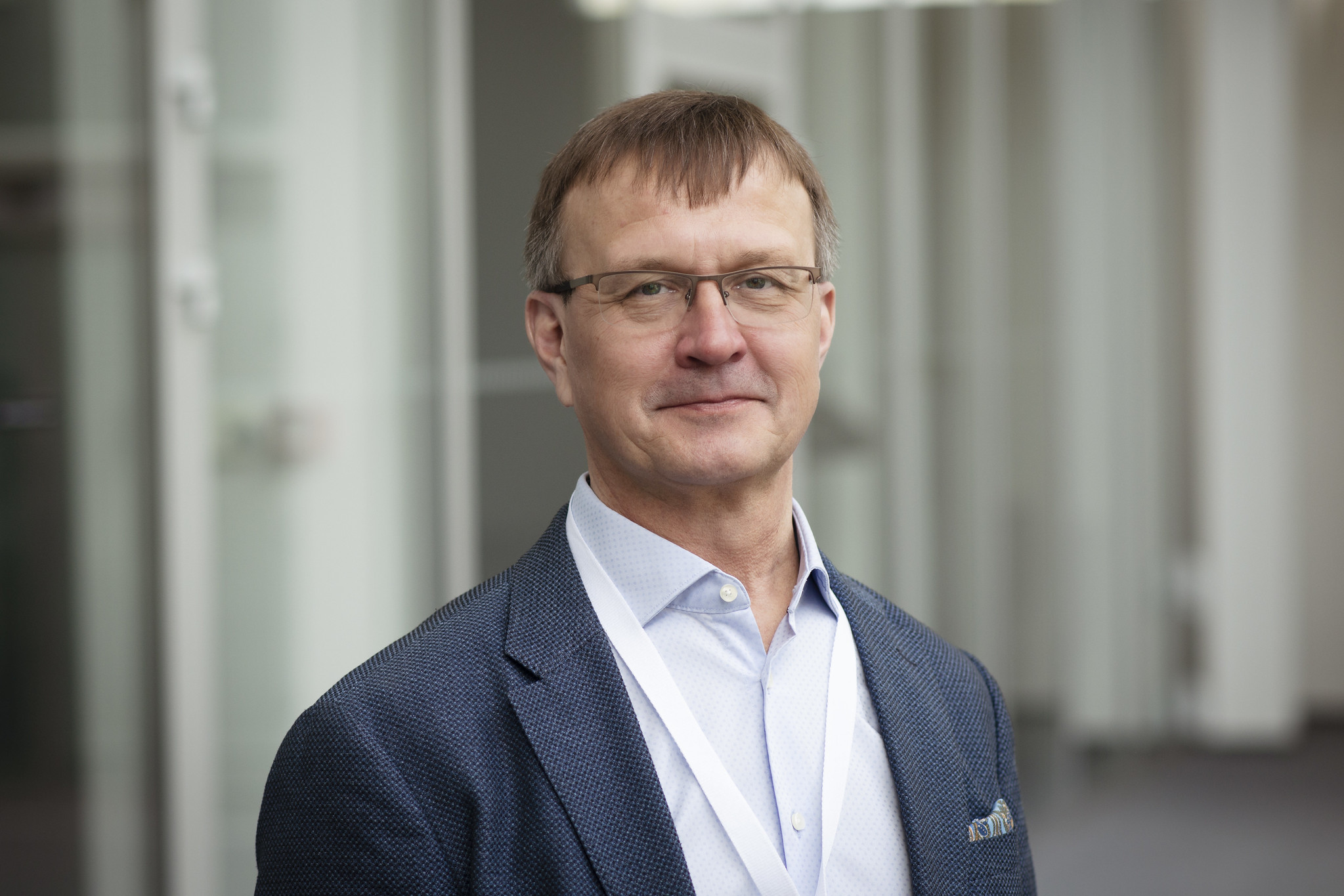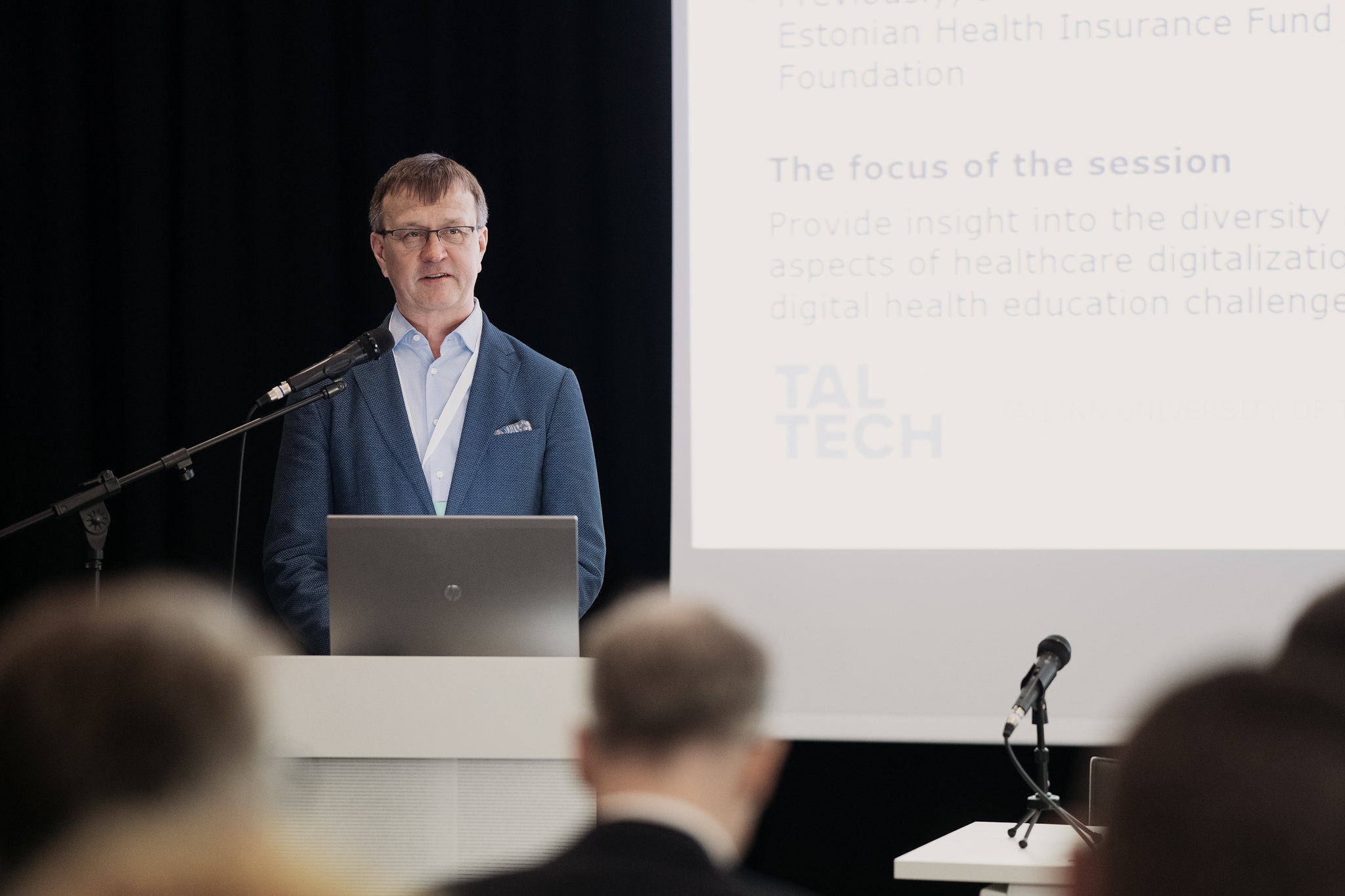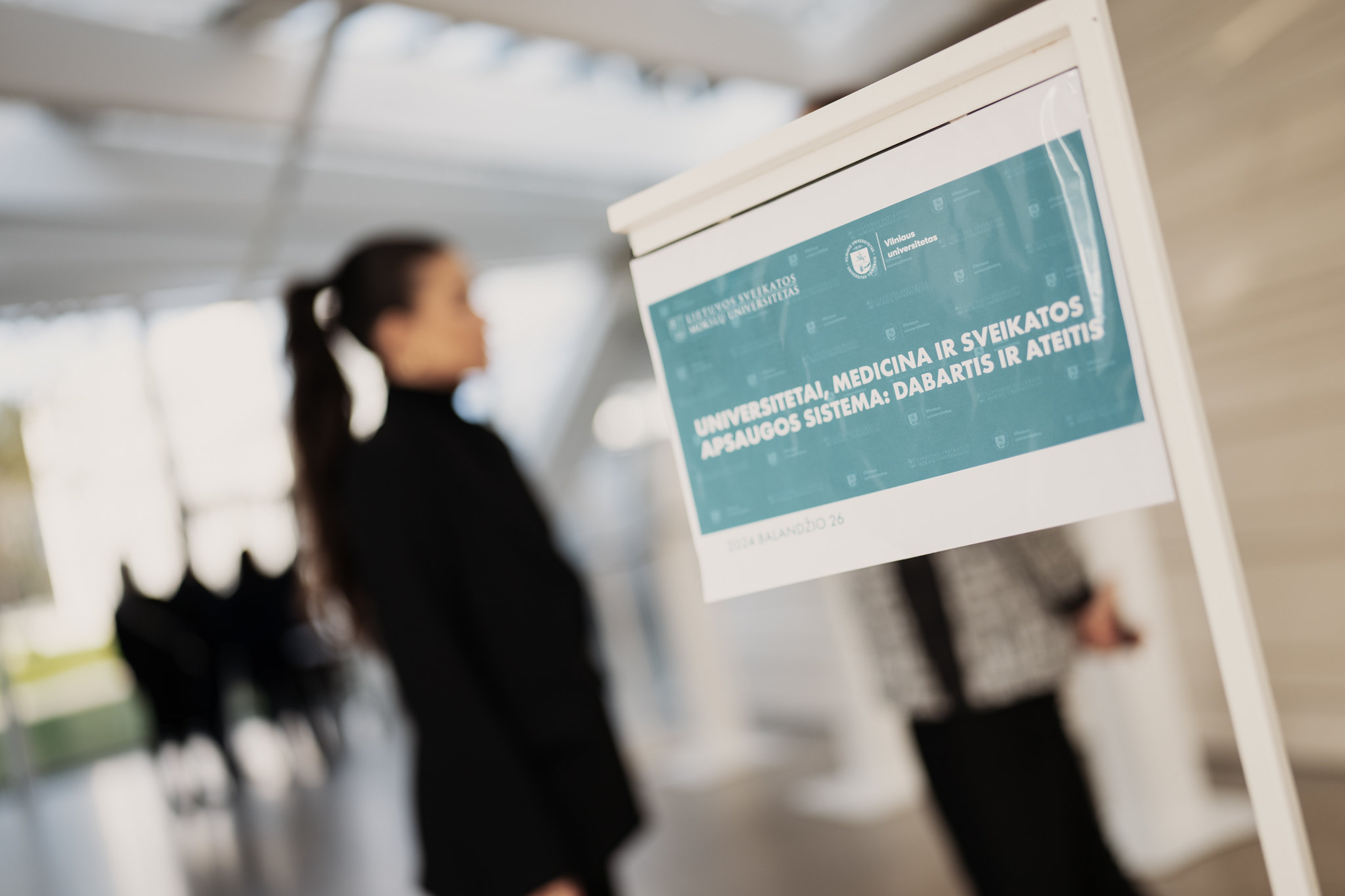Prof. Peeter Ross from Estonia: Medical Students Lack Specific IT Knowledge
 Prof. Peeter Ross
Prof. Peeter Ross
On 26 April 2024, Prof. Peeter Ross, a radiologist at the East Tallinn Central Hospital and professor at Tallinn University of Technology (TalTech), visited Vilnius University’s (VU) Scholarly Communication and Information Centre and gave a presentation. In his lecture Synergies between universities and healthcare institutions: effective models of cooperation and impact on meaningful healthcare digitalisation, Prof. Ross called for a discussion on how digitalisation could be exploited in the healthcare systems of European countries.
“The digitisation of the healthcare system is lagging far behind when compared to other service industries, such as banks or real estate agencies. We still think that service delivery processes in the healthcare environment must remain analogue. We need to change this thinking, and we can only change it by starting with proper education in the universities. In other service industries, it is the customer who is the driving force behind the acceleration of digitalisation. Meanwhile, in healthcare, we are stuck with the opposite approach,” Prof. Ross suggested in his presentation.
According to the researcher, a three-stage digitalisation of the health system is required. The first step, should take place at the level of health authorities. “As doctors, we are employees of hospitals, clinics and other institutions or institutions that provide healthcare services. The staff must learn the electronic medical records system, the whole management of the institution,” the professor noted. The second level represents the ability of institutions to collaborate, to exchange both information and electronic, patient medical records. “This is a question of integration. We need mobilisation both regionally and nationally. The ability of institutions to exchange information also empowers the patient: they no longer must undergo overlapping tests, go to different specialists and explain again and again about their illness, what their previous diagnoses were, etc.,” the doctor explained. The third level in the digitalisation of healthcare is to move from the facility or institutional level to the level of the individual: patients must be able to receive electronic prescriptions, as well as to fill in their own health information (but not of course, their diagnoses), via an electronic system.
 Prof. Peeter Ross
Prof. Peeter Ross
According to Prof. Ross, problems with the digitalisation of healthcare systems begin at the university level: “Medical students lack specific terminology and IT knowledge. First of all, we need to train medical students in information technology, not to train IT specialists in medicine. When doctors, who have not received this specific knowledge during their studies, start to create the entire IT architecture of a hospital or clinic, and IT specialists start to treat people, the situation becomes serious. As a doctor, I know human anatomy, physiology, medication and other medical subjects, but I did not get my IT education until 20 years after qualifying.” However, according to the professor, healthcare system digitalisation, especially the use of artificial intelligence, will never be able to completely replace the human being. “We live in a society where social sciences and the humanities have always been, and always will, be required. We can only use AI when we have extremely high-quality data. Only then can we develop new algorithms and implement digitalised solutions.”
During his presentation, Prof. Ross shared the example of Estonia, where every person in the country has their own personal virtual health account: “We started implementing the Virtual Health System in 2008, but the personalised, i.e. patient-filled summary was only introduced in 2019. It took us 10 years to convince our country’s doctors, IT professionals, politicians, and others that the country really needed this third level of digitisation. So, we must think how we can integrate digitisation at the university level.”
The professor also talked about the successful international Master’s programme at Tallinn University of Technology, which has been running for 15 years. “Half of the students in this programme have a medical background, others come from IT or law. So the contingent, is always very diverse,” he explained. In the first semester of the programme, students learn subjects such as e-health, entrepreneurship, conducting research, information gathering, clinical medicine, and a hackathon is organised. The second semester is dedicated to IT and project management, and medical imaging for clinical analysis and medical intervention. In the third semester, students prepare for their final thesis, undertake internships and summer schools, and in the fourth semester, they either prepare and defend their final thesis or publish a scientific article.

Prof. P. Ross gave his presentation during the Lithuanian Health Forum – Universities, Medicine, and the Healthcare System: Present and Future. The event was organised by the Lithuanian University of Health Sciences and the Faculty of Medicine at VU. The two universities where doctors in Lithuania are trained, brought together the academic and medical community, politicians and all those interested in discussing issues of importance to the country’s healthcare system. Health experts at the forum identified the most pressing problems of the Lithuanian healthcare system. According to the experts, the misallocation or lack of resources, the lack of state support for doctors, the growing gap between university and residency studies, and the inefficient use of the potential of academic medicine, call for a rethink of today’s health policy.